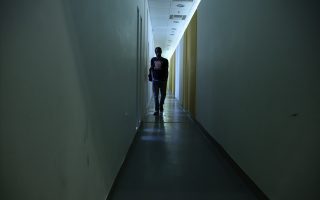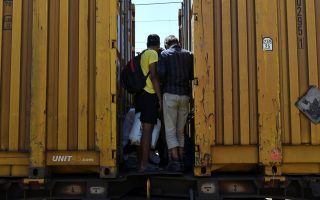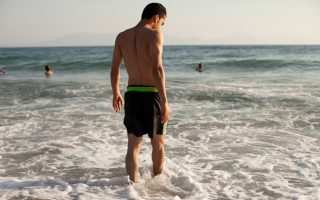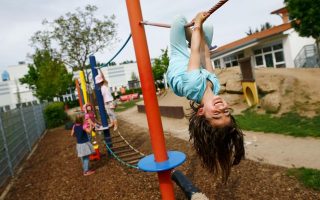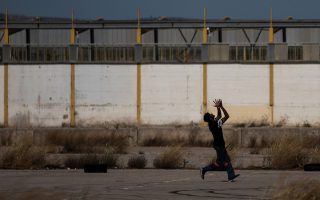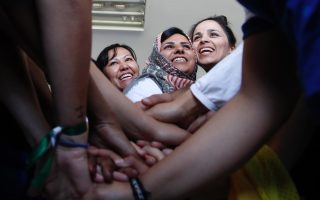Families escape from Turkey, but at what cost?
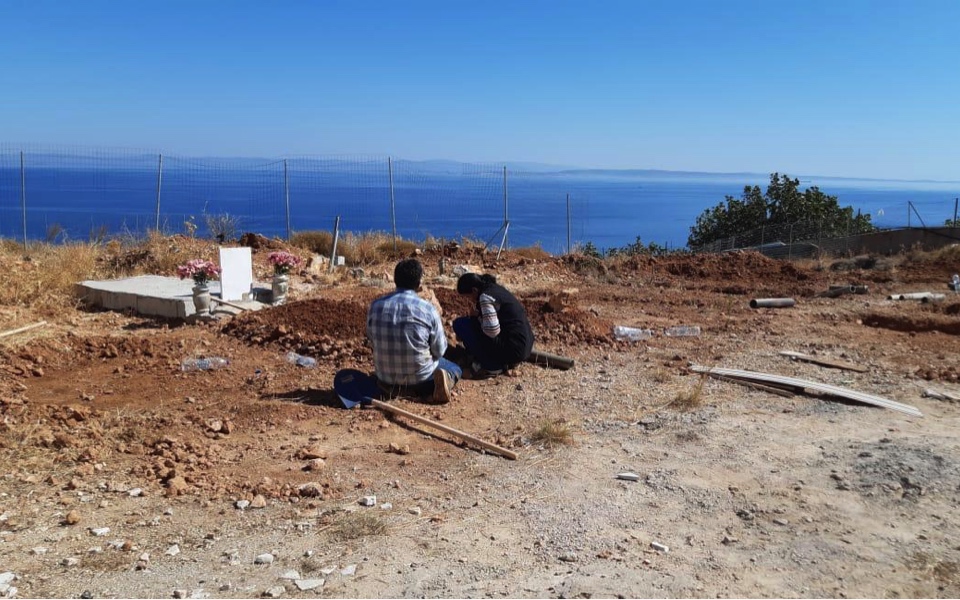
What turned out to be a fateful journey began on the night of Thursday, September 26. Four families of nine adults and as many children scrambled over a belt of rocks in a remote spot on the Turkish coast to board a small speedboat. Believing it to be safer than the customary rubber dinghy, they had paid significantly extra for this boat. Academics, judges, businessmen and teachers, a few years ago they would never have thought that they would have to be smuggled out of their own country, but the trip across the Aegean was now their only option.
They had started putting on the lifejackets passed around by the smuggler when they realized there were’t enough. “This isn’t right,” said Arife, a university professor who was traveling with her husband, Yussuf, their 3-year-old daughter and 7-year-old son. Fatma, a judge, agreed. “This obviously means that there are too many of us for this boat,” she argued. Fatma was holding onto a 2-month-old infant with one arm and her 3-year-old son’s hand with the other. The captain reassured them: “The weather is fine. We’ll be there in an hour,” he said, starting the engine.
Hailing from different parts of Turkey, the families had started planning their journeys months earlier. All of their conversations in the runup to the trip were separated into two categories: Before the botched attempt in July 2016 and after.
Fatma met her husband Nasir at the wedding of a fellow judge. They fell in love and were married in 2015. She specialized in tax cases, he in criminal ones. They were expecting their first child when the coup attempt against President Recep Tayyip Erdogan happened.
It was the same for Arife, whose husband was sentenced to 20 months in prison just before she due was to give birth. “I nearly had my baby in prison,” Fatma told the other woman when they shared their stories. She was accused of having stayed in a dormitory funded by the Gulenist movement when she was still a university student. The 30-year-old judge had to attend her ob-gyn appointments in handcuffs. Fatma and Nasir decided to leave the country once they were released. Both had been fired from their previous jobs so Nasir painted houses and together they grew mushrooms to get the 7,000 euros they needed for the trip.
They had been planning to leave in the autumn of 2018 when Fatma found out she was pregnant again. They eventually decided to try escaping again when the new baby turned 2 months old. They were worried but optimistic about the journey. Some good friends had managed to reach Norway and make a new start there. They were happy despite the challenges and, most importantly, felt free.
When they stepped onto the boat, the Turkish-Cypriot smuggler warned them about making any noise or using their mobile phones in case the light was spotted by coast guard patrols. Having been arrested in Greece on a previous occasion, he was wary and even kept his cigarette tucked into his palm to hide the glow of the burning tip. He was in a rush but the engine started making a strange noise when he pushed the throttle. He called someone on the phone and described the problem. “There’s 19 of us,” he was heard saying before he reduced speed.
Most of the children had fallen asleep. The adults were quiet but clearly concerned until he started shouting that they had crossed into Greece and were “free.” They were relieved until they saw a look of fear on the captain’s face as he wrenched at the wheel. Before they knew it, they had been washed overboard by a big wave.
In the water in the darkness, they panicked. Yussuf grabbed his wife. “Don’t worry, Arife, we’ll be OK,” he said, giving her a push toward the upturned boat so she could hold onto something. He did the same for their son and then started looking for their daughter when he saw the Kara couple struggling to keep their drowning baby’s head above water. He grabbed the infant and handed it to his wife, who had managed to scramble onto the capsized hull. He also found his daughter and handed her up to Arife.
Not knowing how to swim, Oguz was perched on the overturned boat shouting the names of his wife, mother-in-law and son. Fatma and Nasir were also looking for their children. They’d feel something in the water and pull it up, just to discover that it was some item from the boat. They eventually became exhausted and climbed onto the boat with the others. Arife was holding onto her two children and the Kara baby, concerned that she would have nothing to feed her when she woke up from her exhausted slumber. Fatma told her not to worry; if the need arose, she could breastfeed the baby girl.
With the first light of day, Yussuf took off his clothes, tied his lifejacket to his feet and started swimming toward the island of Oinousses to get help. He spotted a boat and swam back, afraid that it might be Turkish. He was sure they would all be arrested. To their surprise, the boat turned around after about 15 minutes in the area and sped off.
The survivors were eventually spotted by a Frontex vessel at 10.20 a.m. Yussuf shouted to the crew that nine people were missing, still in the water, and may be alive. He didn’t voice his fear that this was unlikely. He turned to his wife and told her that they now had a new baby to look after. The infant’s parents, however, had survived 10 hours in the water, holding hands and praying for their three children. When the mother saw her baby in Arife’s arms she started weeping with joy. It only lasted until she realized that her son and older daughter were gone. The first two bodies were found by the rescuers within 20 minutes. By the afternoon, divers had recovered another five.
Once they were transferred to the island of Chios, the captain was arrested and the survivors taken to hospital. “For your own safety, don’t talk to anyone,” a police officer advised them. They were all concerned about how they would bury the dead, adamant that their remains not be returned to Turkey, where they would be treated like traitors.
The police tried to help, telling them there was a Muslim cemetery on the island but no imam. The Turks made some calls and a few hours later, two imams, refugees themselves, appeared. Then they couldn’t find the fabric they needed for the shrouds until a local haberdasher came forward and opened his shop in the middle of the night. The following morning, the survivors – except for Arife who stayed behind with the children – set off for the cemetery.
There, on a hill looking out toward Turkey, Nasir and Fatma cleared the ground and dug the graves for their sons Ibrahim and Mahir. Oguz buried his beloved Meltem, their 11-year-old son and her mother Kevser, while the Kara couple buried 8-year-old Gulsum and 9-year-old Mustafa.
Three police officers, a United Nations worker and a lawyer stood by during the ceremony and helped shovel the dirt back into the seven graves. The survivors made the trip back down the hill in silence. “For your own safety, you should leave for Athens tonight,” they were advised. They boarded the 9.30 p.m. ferryboat and arrived in Piraeus the following morning. They were finally safe – but that was the last thing on their minds.
